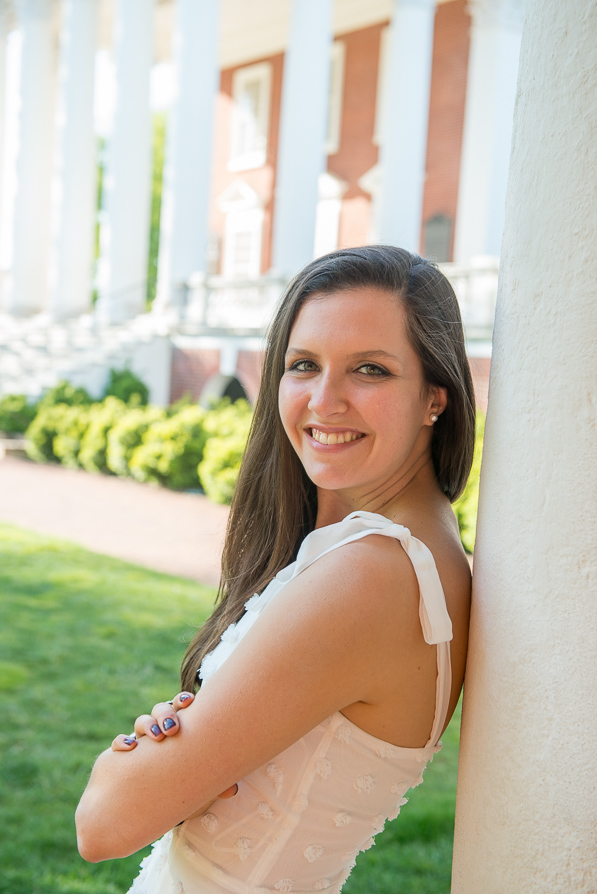by Siana Monet, 2021 Undergraduate Summer Research Fellow in Lived Theology
They told me that it was the largest gathering of Quakers to have congregated at the Blacksburg Friends meetinghouse since the pandemic had started fifteen months before. Twenty-five people in varying stages of formality––ranging from khaki trousers to everyday gardening wear––gathered to sit outside on an eccentric collection of folding, beach, and lawn chairs with the occasional blanket thrown in. We sat in near silence for an hour, interrupted only by birdsong, the reflections two Friends offered on the importance of giving, and the crackling of the speaker set up to include the two participants who were joining via Zoom. The first part of the meeting ended when the Friend chosen that week clapped once and stood up so that we could begin introductions and then offer the joys and sorrows we had experienced in the last week: gratitude for the monarch butterfly way-station erected in a front garden, joy of a new grandchild being born, worry over a sister-in-law’s cancer.
My interest in Quakerism had developed as part of a long and circuitous path. Having been born and raised in Kenya and Thailand, indigenous African religious traditions such as those of the Maasai and the Theravada Buddhism practiced in much of Southeast Asia came much more easily to me than the Missouri Synod Lutheranism of my extended family. Upon moving to Northern Virginia to begin high school, I struggled to find a faith community which resonated with the multicultural spiritual background that I had inherited. I wanted to be able to be in communion with fellow seekers and travelers while not echoing religious insistences that there was only one path to the divine. My family and I ended up attending a Unitarian Universalist church for four years, but the lack of religious commitment was isolating in a different way.
In the middle of high school, I stumbled across the book Let Your Life Speak by the Quaker theologian Parker Palmer. It completely changed my sense of responsibility and commitment to vocation. I considered for the first time that I might want to love what I would do with my life; the book worked its magic on my heart for many years until I decided to drop the premedical track that I had been pursuing and instead begin to consider the spiritual dimensions of healing. This interest in the intersection between spirituality and healing led me to pursue a certificate in Bhutanese traditional medicine, intensive research in Yoruba divination traditions, and a job helping to create the first encyclopedia of Tibetan contemplative traditions. While pursuing all of these different paths, an interest in the stillness at the core of them––and present in the Friends meetings of Herndon and Charlottesville that I came to sit with––grew.
I moved to Blacksburg, Virginia, to sit with the Blacksburg Friends group, many of whom I have met over the course of the last year. In doing so, I hoped to understand more deeply how their practice had changed and shifted since the coronavirus pandemic. For a group who practiced sitting with one another in stillness and silence, I was curious how a year of stillness, silence, and occasional fits of furious toilet paper stockpiling had impacted the Blacksburg Friends’ practice. During the pandemic, I had often thought back to my earlier experiences with Quakerism as a resource for considering the kind of quiet camaraderie that my fellow citizens and I experienced while waiting in line outside of the supermarket, sanitizing our hands before entering and exiting every building, and methodically extending a six-foot berth to those on the sidewalk when running by. I’m excited to see how the Blacksburg Friends’ practices have deepened and changed as I continue to pursue this project.
Learn more about the 2021 Undergraduate Summer Research Fellowship in Lived Theology here.
The Project on Lived Theology at the University of Virginia is a research initiative, whose mission is to study the social consequences of theological ideas for the sake of a more just and compassionate world.

